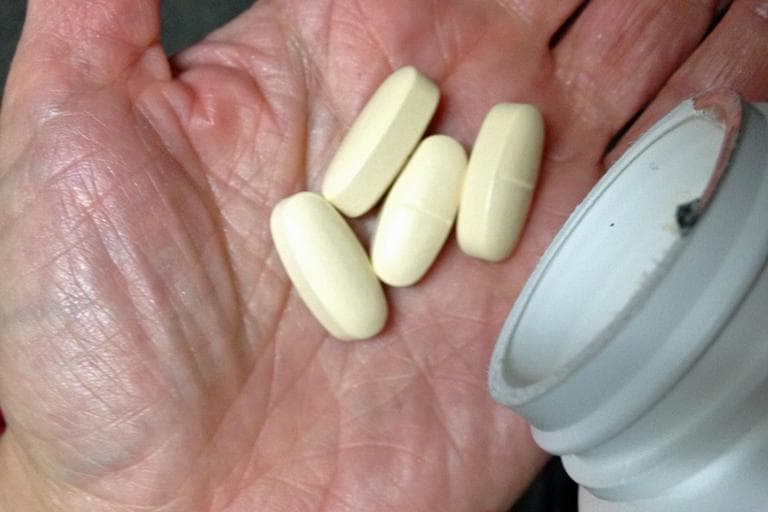Advertisement
Could Vitamins Do More Harm Than Good?
ResumeVitamins and our health. It’s big business. Could the pills do more harm than good?

Headlines on health should always be taken with a grain of salt. Between the research lab and the web post, a lot can get lost. Even so, the headlines on vitamins lately are head-turning. “Is This the End of Popping Vitamins?” “The case for dietary supplements is collapsing.” “Will Supplements Kill You?”
Millions of people take their morning vitamins and more and go on their way. New research is throwing up warning flags. So what’s up with all the vitamin A, B, C, D, E we’re gulping down?
This hour On Point: vitamin supplements and our health. Plus, the HPV vaccine, for boys.
-Tom Ashbrook
Guests
Sharon Begley, science columnist and science editor of Newsweek.
Marion Nestle, Paulette Goddard Professor of Nutrition, Food Studies, and Public Health, at New York University's Steinhardt School of Culture, Education, and Human Development.
Walter Willett, Fredrick John Stare Professor of Epidemiology and Nutrition Chair, Department of Nutrition - Department of Nutrition, Harvard University's School of Public Health.
C-Segment — Boys And The HPV Vaccine
William Schaffner, Chair of the Department of Preventive Medicine, Vanderbilt University School of Medicine.
From Tom's Reading List
Wall Street Journal "A succession of large-scale human studies, including two published earlier this month in leading medical journals, suggests that multivitamins and many other dietary supplements often don't have health benefits—and in some cases may even cause harm."
The New York Times "The dose being studied in the Select trial was 200 micrograms of selenium and 400 international units of vitamin E. By comparison, most multivitamins contain about 50 micrograms of selenium and 30 to 200 international units of vitamin E."
NPR "We have a lot to learn about absorption (of nutrients). There are genetic and gender differences. For instance, African Americans need more vitamin D because of skin pigment. Older people need extra B12 because they don't make enough stomach acid, which you need to liberate B12 from food. Iron is another example. The body doesn't have a good way to get rid of iron except through blood loss, so postmenopausal women, and men, do not need to take an iron supplement."
This program aired on October 27, 2011.